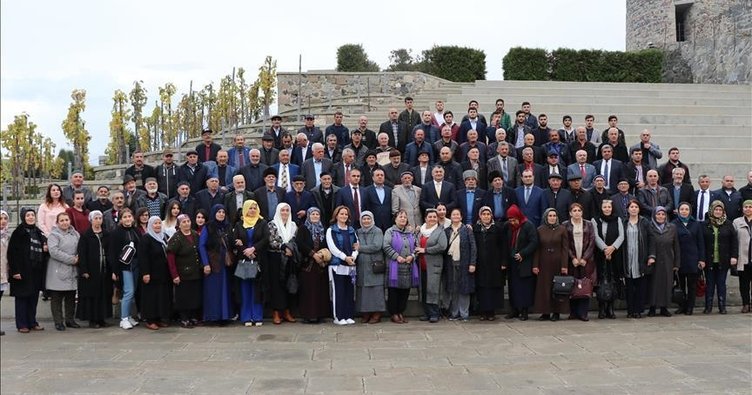
In November 1944, the Soviet Union under the leadership of Joseph Stalin exiled the entire population of the Meskhetian/Ahıska Turks (approximately 90,000-120,000 people) from their homeland in Georgia. Since that time, Meskhetian Turks have been living in many countries around the world. Today, it is estimated that there are about 550,000-600,000 Meskhetian Turks[1] living in countries such as Ukraine, Azerbaijan, Georgia, Kazakhstan, Russia, Turkey, and Uzbekistan. When an evaluation is made for these countries, it will be of particular importance to mention Georgia because Meskhetian Turks used to live in the southern part of Georgia, previously known as the Meskheti region. Therefore, the issue of these people’s return to their homeland requires the efforts of the Georgian government. Accordingly, when Georgia became a member of the Council of Europe (CoE) in 1999, it made a commitment to return the Meskhetian Turks to their homeland. According to this, Georgia would initiate the return of Meskhetian Turks within three years from 1999 and the process would be completed by 2011[2]. Yet, it is the year 2020, and no noticeable progress has so far been made regarding the return of these people to their homeland.
Georgia’s attitude about the return of Meskhetian Turks to their homeland has been followed closely by Turkey since Turkish people view Meskhetian Turks as “relatives to a certain extent”.[3] The main reason for this is the similarities of the Meskhetian identity and Turkish identity. The majority of these people identify themselves as “Ahıska Turks”, meaning adherence to Turkish identity, rather than “Meskhetian”, meaning adherence to Georgian identity. There are political reasons for using these different names and identities.[4] Again, the main issue is related to the return of the Meskhetian Turks to their homeland and the question is “what identity will these people adopt when they return to Georgia?”
Concerning this problem, Turkey has often emphasized the Turkic origins of the people, while Georgia argues that these people are ethnic Georgians who adopted a Turkish identity after converting from Christianity to Islam. Although the Georgian state officially defines the Meskhetian Turks as Georgian, the dominant view in Georgian society that they have Turkish identity is one of the important reasons for Georgia’s reluctance for the return process. [5]
The demographic structure of the Meskhetian Turks and the way they define themselves reveal important clues about these people’s past and present. According to a survey held in Antalya, in interviews with Meskhetian Turks, although people prefer the term “Ahıska Turks” in their identity definitions, they mainly focused on Turkishness.[6] This survey is an example that shows the Meskhetian Turks’ commitment to Turkish identity. In return for this professed closeness to Turkey, at every opportunity, Turkey articulates its support to the Meskhetian Turks.
In this context, Ankara plays a significant role in facilitating the return of the Meskhetian Turks to Georgia. Turkey has seen the return of Meskhetian Turks as a fundamental right. With this sense of historic responsibility, it closely follows the developments in this issue. However, knowing Georgia’s concerns over its internal stability and social cohesion over this issue, Turkey prefers not to reflect the attempts to solve the problem onto its relations with Georgia. Turkey is aware that pressuring Georgia on this problem would lead to a serious disruption in relations between the two sides.
In line with this, Turkey has expressed a measured response to the tardiness of Georgia and has tried to keep neighborly relations at a decent level. However, some initiatives are being implemented to put pressure on Georgia to accelerate the return process. For instance, the World Union of Ahıska Turks (Dünya Ahıska Türkleri Birliği-DATÜB) was established with the support of Turkey.[7] DATÜB officials meet regularly with officials from Turkey and Georgia. In these meetings, the problems in the implementation of the return law are expressed and various requests are submitted.[8] On November 21, 2020, the Minister of Foreign Affairs of Turkey Mevlüt Çavuşoğlu met with Ziyatdin Kassanov, the Chairman of DATÜB. After this meeting Çavuşoğlu, in a post on his Twitter account, shared the following message: “We will continue to support the just cause of the Ahıska Turks and support our Ahıskan fellows at all times and everywhere.”[9] As such, instead of putting pressure on Georgia directly, Turkey is working through mediator institutions. Çavuşoğlu has also included the issue of Meskhetian Turks in his speech in November regarding Turkey’s diplomatic calendar. With respect to Turkey’s policy about Meskhetian Turks, Çavusoğlu stated: “Who says we have forgotten the Ahıska Turks? I am a politician who has devoted myself to Ahıska Turks issue since 2003.”[10]
According to some arguments, the issue of the return of Meskhetian Turks “is not an emotional issue, but a geopolitical event” for Turkey and that in this regard Turkey must play an active role in this process because Georgia is an important point of intersection that provides the connection between Turkey and the Turkic republics.[11] Regarding this matter, according to the Turkish officials, Turkey has acted as a third party in the return of the Meskhetian Turks to Georgia. Turkey indicates that the main actors during the return process should be the Meskhetian Turks associations and the Council of Europe; while Turkey should give extrinsic support to this process.[12]
One of the most important reasons why the Meskhetian Turks issue is dealt carefully and has thus not disrupted relations is due to importance of the multiple bonds between the two countries. Turkish-Georgian economic, commercial, and cultural ties have been strengthened since the 1990s. After the introduction of a visa-free regime, inter-ethnic relations have increased significantly, and Turkey has become a favorite place for Georgian job seekers.[13] Bilateral relations are also important due to the pipelines passing through the two countries. Especially after the oil and gas pipeline projects passing through Georgia have come into operation, Georgia’s geopolitical importance has increased considerably, and sustaining Georgia’s stability has become the primary target of Turkey’s policy towards this country.[14] In line with Georgia’s rising geopolitical importance, Turkey-Georgia security/military cooperation has increased markedly over the years.
It would not be wrong to say that the return of the Meskhetian Turks to their homeland is a so far unfulfilled promise made by post-Soviet Georgia. Georgia has little motivation to complete this process, considering that it is already a Council of Europe member, and CoE has so far put only symbolic pressure on Georgia to honor its promise. Consequently, different actors including Turkey have stepped forward to accelerate this process. Nevertheless, because of the existing good economic, political, and military relations between Turkey and Georgia, Turkey takes a measured stand concerning the Meskhetian Turks issue and chooses not to disparage Georgia. Turkey’s eventual goal is the full return of Meskhetian Turks to their homeland in Georgia, yet Turkey strives to achieve this within the confines of its friendly relations with Georgia.
*Photo: A group of Meskhetian Turks visiting their homeland in Georgia - Source: https://www.sabah.com.tr/yasam/2018/10/24/ahiska-turkleri-anavatanlari-gurcistanda-bulustu
[1] Talha Yavuz, “Ahiska Turks' memories of exile remain alive and vivid”, Anadolu Agency, November 14, 2020, https://www.aa.com.tr/en/world/ahiska-turks-memories-of-exile-remain-alive-and-vivid/2044085
[2] Haydar Efe, “Gürcistan'ın Avrupa Konseyi Üyeliği ve Avrupa İnsan Hakları Sözleşmesi’nin Tarafı Olması ve Ahıska Türklerinin Anavatanlarına Dönüşü Sorunu”, Uluslararası Ahıska Türkleri Sempozyumu, Bildiriler, No: 2, Erzincan, 11-13 Mayıs 2017, p. 142.
[3] Diba Nigar Göksel, “Turkey and Georgia: Zero-Problems?”, The German Marshall Fund of the United States, Strengthening Transatlantic Cooperation: Black Sea Trust for Regional Cooperation, Romania, 2013, p.4.
[4] Serhat Keskin, “The Repatriation Process Of Meskhetian/Ahiska Turks To Their Homeland In Georgia: Challenges And Prospects”, M.S. Thesis, Middle East Technical University, 2019, p.16.
[5] Alter Kahraman & Mehmet Oğuzhan Tulun, “Post-Sovyet Gürcistan’da Azınlık Hakları: Uluslararası Örgütler ile Uluslararası ve Ulusal Sivil Toplum Kuruluşlarının Bakışı”, Gürcistan'daki Müslüman Topluluklar: Azınlık Hakları, Kimlik, Siyaset, (ed.) Ayşegül Aydıngün, Ali Asker ve Aslan Yavuz Şir (Ankara: Terazi Yayıncılık, 2016), p.141.
[6] Damla Mursül, “Türkiye’de Yaşayan Ahıska Türklerinde Kimlik Algısı: Antalya Örneği”, Uluslararası Ahıska Türkleri Sempozyumu, Bildiriler, No: 2, Erzincan, 11-13 Mayıs 2017, p. 433-448.
[7] Keskin, “The Repatriation Process Of Meskhetian/Ahiska Turks…”, p. 36.
[8] Serhat Keskin & Özge Anaç, “Ahıska Türklerinin 1944 Sürgününden Günümüze Gürcistan’a Geri Dönüş Mücadelesi ve 2007 Yılına Kadar Dönenlerin Durumu”, Gürcistan'daki Müslüman Topluluklar: Azınlık Hakları, Kimlik, Siyaset, (ed.) Ayşegül Aydıngün, Ali Asker ve Aslan Yavuz Şir (Ankara: Terazi Yayıncılık, 2016), p. 286.
[9] “Bakan Çavuşoğlu, Dünya Ahıska Türkleri Birliği üyeleriyle görüştü”, TRT Haber, 21 Kasım 2020, https://www.trthaber.com/haber/gundem/bakan-cavusoglu-dunya-ahiska-turkleri-birligi-uyeleriyle-gorustu-532886.html
[10] Nazlı Yüzbaşıoğlu, “Türkiye'nin 2021 diplomasi ajandasının ana başlığı 'Girişimci ve İnsani Dış Politika”, Anadolu Ajansı, 28 Kasım 2020, https://www.aa.com.tr/tr/turkiye/turkiyenin-2021-diplomasi-ajandasinin-ana-basligi-girisimci-ve-insani-dis-politika/2058724
[11] Yuliya Biletska & Turgut Kerem Tuncel, “Ahıska Türklerinin Gürcistan’a Geri Dönüşü ve ‘Ermeni Faktörü”, Gürcistan'daki Müslüman Topluluklar: Azınlık Hakları, Kimlik, Siyaset, (ed.) Ayşegül Aydıngün, Ali Asker ve Aslan Yavuz Şir (Ankara: Terazi Yayıncılık, 2016), p. 339.
[12] Biletska & Tuncel, “Ahıska Türklerinin Gürcistan’a Geri Dönüşü ve ‘Ermeni Faktörü”, p. 339.
[13] Reha Yılmaz, Mehmet Sayın & Valeri Modebadze, “Georgian – Turkish Relations since the Breakdown of Soviet Union”, Çankırı Karatekin University, Journal of The Faculty of Economics and Administrative Sciences, No: 1 (2014), p. 360.
[14] Yılmaz et. al, “Georgian – Turkish Relations since the Breakdown of Soviet Union”, p. 366.
© 2009-2025 Center for Eurasian Studies (AVİM) All Rights Reserved
No comments yet.
-
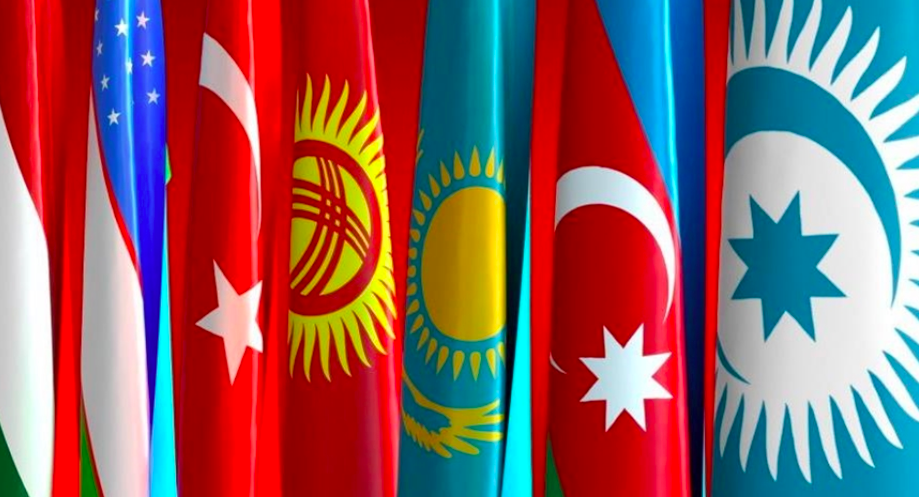 INCREASING PARTNERSHIP WITH THE TURKIC COUNCIL
INCREASING PARTNERSHIP WITH THE TURKIC COUNCIL
Şevval Beste GÖKÇELİK 01.11.2021 -
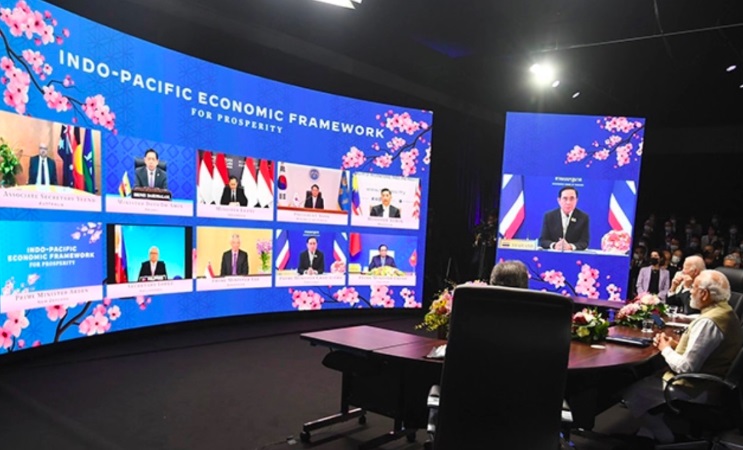 ECONOMIC INTEGRATION GROWS IN INDO-PACIFIC
ECONOMIC INTEGRATION GROWS IN INDO-PACIFIC
Şevval Beste GÖKÇELİK 07.06.2022 -
 AN AREA OF GLOBAL COMPETITION: THE BALKANS
AN AREA OF GLOBAL COMPETITION: THE BALKANS
Şevval Beste GÖKÇELİK 17.06.2021 -
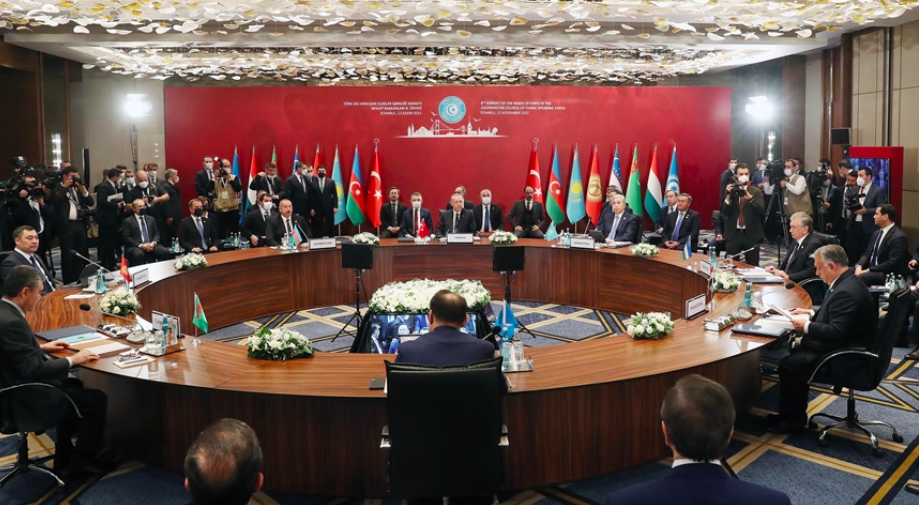 FROM TURKIC COUNCIL TO ORGANIZATION OF TURKIC STATES
FROM TURKIC COUNCIL TO ORGANIZATION OF TURKIC STATES
Şevval Beste GÖKÇELİK 22.11.2021 -
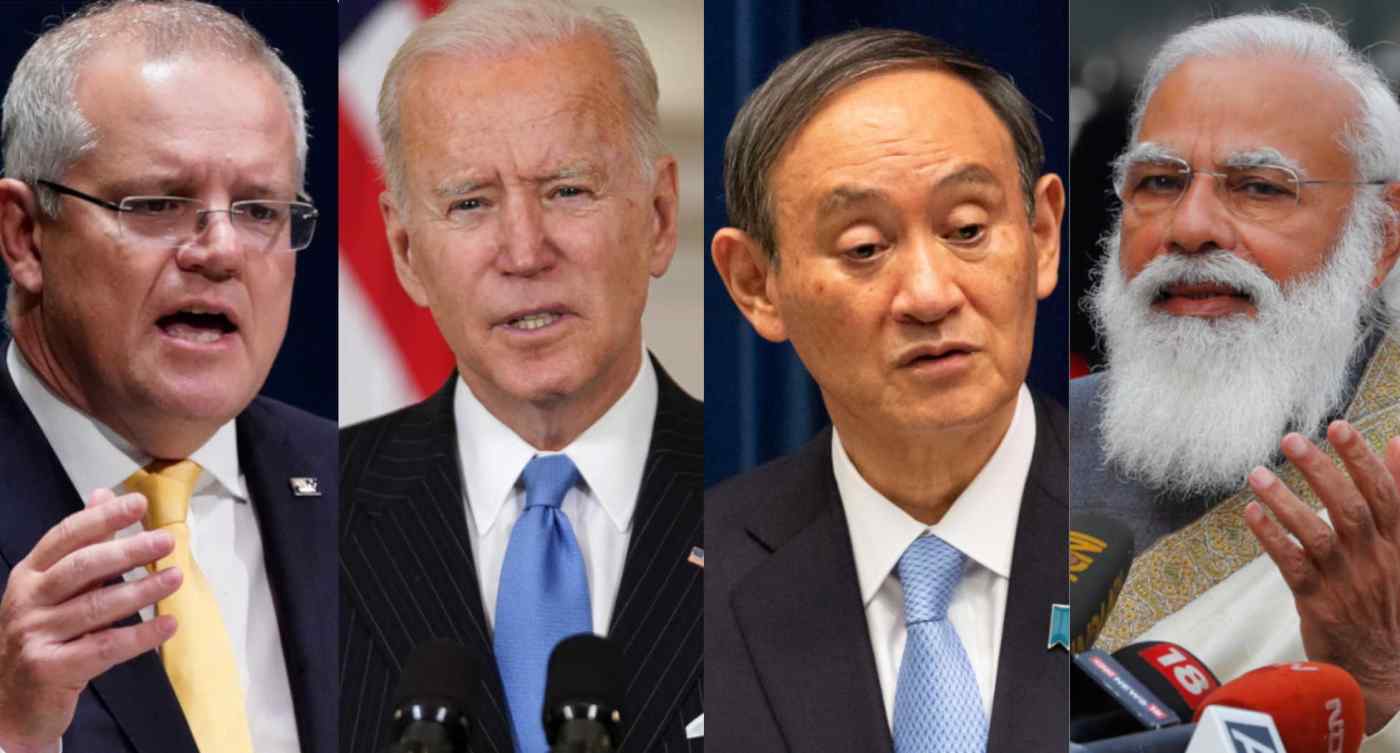 THE QUAD: TURNING POINT FOR THE INDO-PACIFIC
THE QUAD: TURNING POINT FOR THE INDO-PACIFIC
Şevval Beste GÖKÇELİK 01.04.2021
-
 HARVARD UNIVERSITY’S BELFER CENTER-UNBECOMING ACADEMICS
HARVARD UNIVERSITY’S BELFER CENTER-UNBECOMING ACADEMICS
AVİM 03.12.2019 -
THE ARMENIAN QUESTION AFTER THE HOLIDAYS - I
Ömer Engin LÜTEM 05.09.2011 -
 PRESIDENT SARGSYAN’S RESPONSE TO THE INVITATION FOR THE COMMEMORATION CEREMONIES OF THE 100TH ANNIVERSARY OF THE BATTLE OF GALLIPOLI
PRESIDENT SARGSYAN’S RESPONSE TO THE INVITATION FOR THE COMMEMORATION CEREMONIES OF THE 100TH ANNIVERSARY OF THE BATTLE OF GALLIPOLI
AVİM 20.01.2015 -
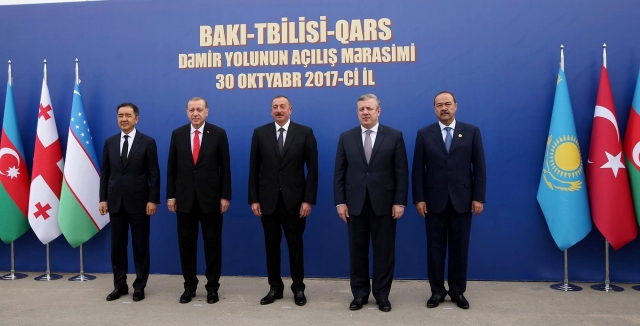 WHY THE BAKU-TBILISI-KARS RAILWAY MATTERS
WHY THE BAKU-TBILISI-KARS RAILWAY MATTERS
Özge Nur ÖĞÜTCÜ 01.11.2017 -
NUMBER 21 OF THE REVIEW OF ARMENIAN STUDIES HAS BEEN PUBLISHED
AVİM 27.07.2010
-
25.01.2016
THE ARMENIAN QUESTION - BASIC KNOWLEDGE AND DOCUMENTATION -
12.06.2024
THE TRUTH WILL OUT -
27.03.2023
RADİKAL ERMENİ UNSURLARCA GERÇEKLEŞTİRİLEN MEZALİMLER VE VANDALİZM -
17.03.2023
PATRIOTISM PERVERTED -
23.02.2023
MEN ARE LIKE THAT -
03.02.2023
BAKÜ-TİFLİS-CEYHAN BORU HATTININ YAŞANAN TARİHİ -
16.12.2022
INTERNATIONAL SCHOLARS ON THE EVENTS OF 1915 -
07.12.2022
FAKE PHOTOS AND THE ARMENIAN PROPAGANDA -
07.12.2022
ERMENİ PROPAGANDASI VE SAHTE RESİMLER -
01.01.2022
A Letter From Japan - Strategically Mum: The Silence of the Armenians -
01.01.2022
Japonya'dan Bir Mektup - Stratejik Suskunluk: Ermenilerin Sessizliği -
03.06.2020
Anastas Mikoyan: Confessions of an Armenian Bolshevik -
08.04.2020
Sovyet Sonrası Ukrayna’da Devlet, Toplum ve Siyaset - Değişen Dinamikler, Dönüşen Kimlikler -
12.06.2018
Ermeni Sorunuyla İlgili İngiliz Belgeleri (1912-1923) - British Documents on Armenian Question (1912-1923) -
02.12.2016
Turkish-Russian Academics: A Historical Study on the Caucasus -
01.07.2016
Gürcistan'daki Müslüman Topluluklar: Azınlık Hakları, Kimlik, Siyaset -
10.03.2016
Armenian Diaspora: Diaspora, State and the Imagination of the Republic of Armenia -
24.01.2016
ERMENİ SORUNU - TEMEL BİLGİ VE BELGELER (2. BASKI)
-
AVİM Conference Hall 24.01.2023
CONFERENCE TITLED “HUNGARY’S PERSPECTIVES ON THE TURKIC WORLD"









